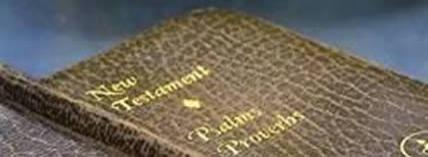John Hick's Apologetic for Agnosticism
Religious pluralism has gained a foothold both as a mainstream academic position and in popular culture. John Hick must be understood as a key proponent of this radical revisioning of Christianity. In this workshop we will assess the framework of Hick’s thought and consider evangelical responses to the problems posed by the world religions.
Biographical Background
The Early Years
Born in 1922, Hick describes his upbringing as traditional Anglican. He did encounter a Pentecostal preacher as a child but was more drawn to quasi-Hindu thinking. He identifies his 'conversion' through the witness of his University Christian Union. His studies were interrupted by the war. On his return he switched from Law to Philosophy.
Christian Ministry
Hick graduated in 1948. He was ordained into the Presbyterian Church (now URC). One parish ministry was followed by a lifetime in academia. He has taught in the US and UK along with guest lecturing in India and elsewhere.
The Shift to Pluralism
One can trace a progressive shift in his work from conservative Christianity to a radical position. By the late 1950’s he regarded himself as a mainstream liberal. In Birmingham during the 1960’s he came to doubt the uniqueness of Christianity, particularly as he worked within the large multi-faith environment. The new 'pluralist' theology (Copernican Revolution) was put into print in 1973 and subsequent publications have tended to be a clarification and development of this thesis. Essentially, Hick argues that all the major world religions are responding in some valid way to the same ultimate, divine reality.
The Case for Religious Pluralism
The Copernican Revolution
Hick argues for a paradigm shift in Christian self understanding. The move is from Christ being at the centre of religious faith to God being at the centre. In later work the term 'God', being too religion-specific, was replaced by 'the Real' or 'Ultimate Reality'. The image of a 'Copernican revolution' is primarily a rhetorical device aimed at disabling the inclusivist claim that Christ may be at work in other religions.
The Nature of Faith
Hick is more a philosopher than a theologian and there are two fundamental strands to his epistemology. Borrowing from the work of Ludwig Wittgenstein he uses the term 'seeing-as' to describe the way that we experience life in terms of psychological expectations. Faith is a way of seeing the world through the lens of religious presuppositions. Following the work of the German philosopher, Immanuel Kant, Hick draws upon a distinction between 'phenomena' and 'noumena' to distinguish between two perspectives on reality. In effect, we can never really know what is meant by the term 'god' as he/she/it can never be directly perceived or experienced.
Exclusivism Creates Disharmony
Hick declares the traditional Roman Catholic doctrine morally untenable; 'extra ecclesiam nulla salus' (outside the church, no salvation). This is an idea implicit in all forms of exclusivism and leads to arrogance and intolerance. The benefits of pluralism include inter-religious harmony and co-operation. Open mindedness rather than arrogance and the appreciation of others insights are all supposed benefits of the pluralist interpretation of religion.
The character of God: love and mercy
Hick promotes an 'Irenean' theodicy in contrast to the classic Augustinian approach. God will use evil to bring about good including a universal knowledge of God. Rather than describing the fall as a catastrophic error from which we need rescue (Augustine), it should be seen as a step forward in our growth towards God consciousness. Hick quotes approvingly the words of Julian of Norwich 'All will be well, and all manner of things will be well.' This also leads to Hick’s suggestion that there may be many worlds beyond this one where our growth towards God consciousness may continue.
Christian doctrine as mythological
Traditional liberal scepticism over the historical documents led Hick to further scepticism over the philosophy embedded in the documents. Hick argues that the traditional doctrine of the incarnation makes no sense. Instead, key Christian doctrines are to be understood as mythological affirmations. Once we accept that the historical Jesus was just a very good man then the difference between him and other religious figures is a matter of degree not kind.
Engaging with Pluralism
The pluralist version of tolerance
The varieties of religions are subjected to an interpretation that robs them of any particular significance. This raises the question of whether a pluralist can really ever learn anything new from another religion. Pluralism offers its own form of exclusivism in which all rival world views are marginalized. The Christian apologist should demonstrate that 'particularism' is no more exclusivist than pluralism, indeed it may even be shown to be more respectful in its treatment of the world religions.
The place of truth among pluralists
There are abounding examples of conflicting truth claims among religions (such as the Islamic view of the crucifixion and the Buddhist view of the caste system). These are not accidental but part of their essence. Many religions are at least partly founded on the basis of weaknesses or problems identified in rival religions. For the pluralist, historical truth claims can always be relativised in favour of a supposed universal truth. Hick claims not to be a relativist but on what basis are his own absolutes established? The Christian apologist should continue to demonstrate the historicity of the Biblical record and the superiority of its claims to any rival system.
Pluralism and Agnosticism
A doctrine of revelation has no place in this system. A non-personal deity can only give rise to a non-revelatory theology. Hick’s doctrine of God is increasingly devoid of content. Very little can be said of his nature and significance. The Christian apologist must be unashamed in presenting Christ as the unique revelation of God in history. In contrast to all speculative claims this confession is based upon divine revelation.
Bibliography
Selected works by John Hick
God and the Universe of Faiths, Macmillan, 1973
An Interpretation of Religion, Macmillan, 1989
The Fifth Dimension, Oneworld, 1999
Dialogues in the Philosophy of Religion, Palgrave, 2001
An Autobiography, Oneworld, 2003
Selected Critical Responses
Gavin D’Costa John Hick’s Theology of Religions, University Press of America, 1987
Harold Hewitt Problems in the Philosophy of Religion, Macmillan, 1991
Dewi Arwel Hughes Has God Many Names?, Apollos, 1996
Harold Netland Dissonant Voices, Apollos 1991
Christopher Sinkinson The Universe of Faiths, Paternoster, 2001



